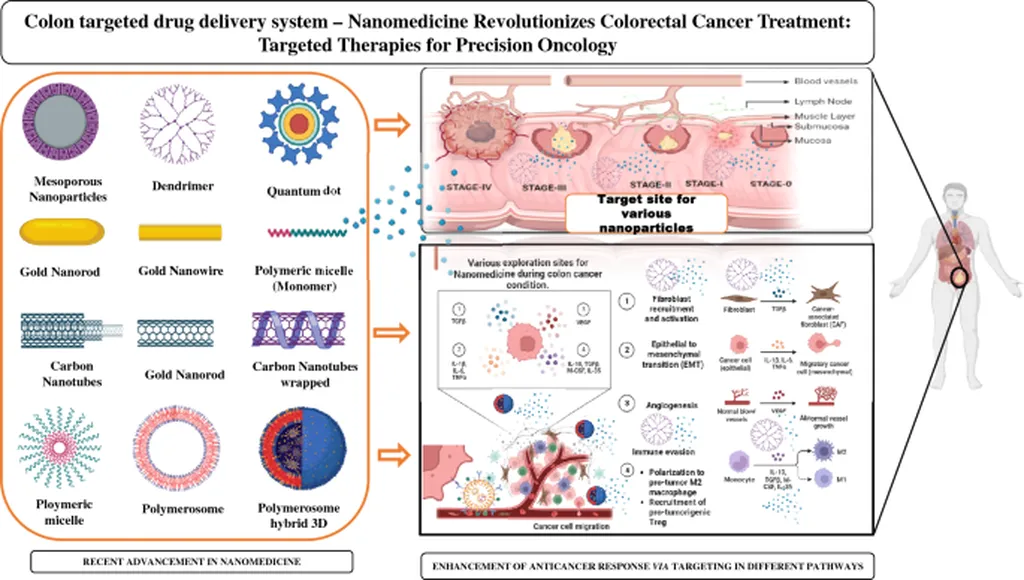In the relentless battle against colorectal cancer, a novel therapeutic approach has emerged, offering a glimmer of hope and a potential shift in treatment paradigms. Researchers, led by Zhen Ren from the Central Hospital of Dalian University of Technology, have developed a targeted nanomedicine that could redefine how we combat this pervasive disease.
Colorectal cancer (CRC) remains a formidable adversary, ranking high among cancer-related morbidity and mortality worldwide. The team’s innovative strategy involves the use of shikonin (SHK), a bioactive compound derived from traditional herbal medicine, loaded onto dextran-modified albumin nanoparticles. This novel approach aims to enhance drug stability and enable targeted delivery to tumor sites, minimizing systemic toxicity.
The journey began with bioinformatics tools and computer simulations, which identified SLC2A1 and PKM2 as potential therapeutic targets for CRC. “Through molecular docking, we confirmed that shikonin could effectively bind to these targets, indicating its potential therapeutic effect,” Ren explained. This binding affinity set the stage for the development of a nanoplatform functionalized with albumin (BSA) and glycoside modification (gBSA/SHK), designed to improve stability and precision in tumor targeting.
In vitro and in vivo experiments revealed promising results. The SHK-loaded nanoparticles exhibited significant tumoricidal effects on CT26 colorectal cancer cells and influenced tumor cell metabolism. “Our results suggest that SHK-loaded nanodrugs can effectively target key molecular pathways in CRC,” Ren noted. This targeted approach not only enhances the therapeutic efficacy but also reduces the risk of adverse effects associated with conventional treatments.
The implications of this research extend beyond the immediate scope of colorectal cancer treatment. The development of targeted nanodrugs represents a significant advancement in the field of oncology, offering a more precise and less toxic approach to cancer therapy. This could pave the way for similar strategies to be applied to other types of cancer, potentially revolutionizing the way we treat malignant diseases.
Moreover, the commercial impact of this research could be substantial. The energy sector, which often grapples with the health implications of its workforce, could benefit from more effective and targeted cancer therapies. Reduced systemic toxicity means fewer side effects and a better quality of life for patients, which can translate to a more productive and healthier workforce.
Published in the journal Discover Nano (which translates to “Exploring Nano” in English), this research highlights the potential of nanotechnology in medical applications. As we continue to explore the capabilities of nanodrugs, the future of cancer treatment looks increasingly promising. The work of Ren and his team not only advances our understanding of colorectal cancer but also sets a precedent for the development of targeted therapies in the broader field of oncology.
In the words of Ren, “This is just the beginning. The potential of nanotechnology in medicine is vast, and we are only scratching the surface.” As we stand on the brink of a new era in cancer treatment, the possibilities are as boundless as they are exciting.

